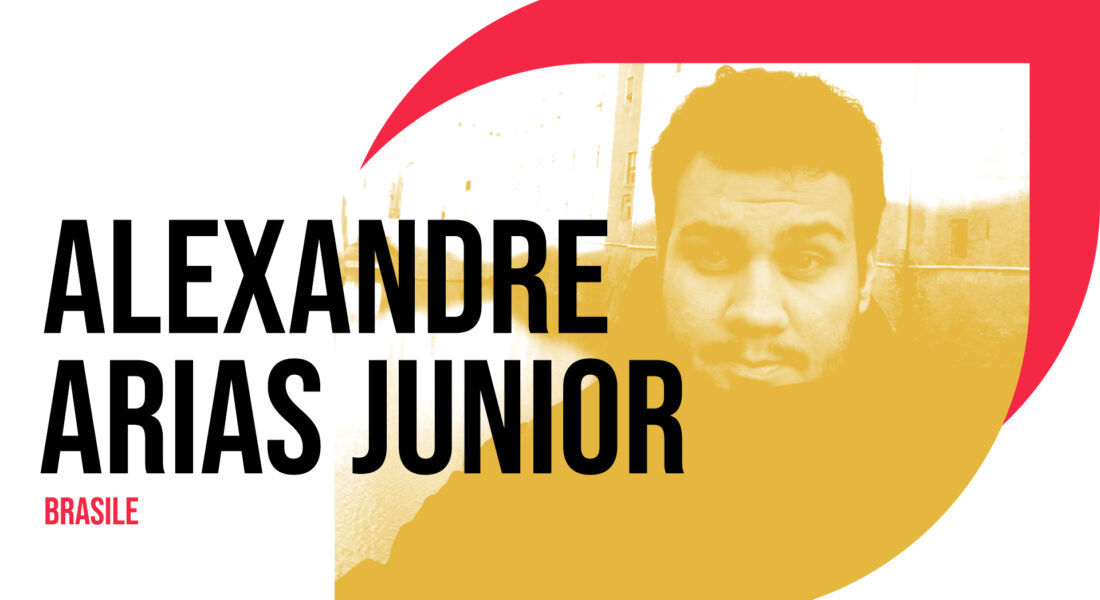
So much cultural richness shines through in the way concepts are expressed in different languages
“At 28 years old, I decided to embark on a research journey, research in mathematics, in Italy”.
Alexandre was born in Curitiba, the capital of the state of Parana, in the southern part of Brazil, on the edge of São Paulo.
He is a mathematician by profession, an analyst…
But who is an analyst? “I would say that it would be one who studies variations in functions, that is, relations between objects in two sets with some property, and who study the equations – that is, the writing of these properties – that describe these variations. Do you think it is understood? …That’s a tough question!” – he smiles.
Alexandre speaks Portuguese, English for work, and now Italian. Using the Tandem application and meeting a Sicilian girl interested in learning Brazilian Portuguese, he managed to establish a “beautiful language exchange” online when he was still in Brazil: this is not only because he likes the language, but also because it seemed more courteous to be able to speak with future colleagues in their own language and not only in English. He tells us, “I find it fun that with my advisor and colleagues, we work in Italian, even with mathematics, which is a language everyone considers universal”… but so much cultural richness shines through in the way concepts are expressed in different languages.
Alexandre earned a bachelor’s degree in Brazil to teach mathematics and then a master’s degree with a specialization in partial derivation equations at the Federal Technological University of Parana. He dreamed of being a math teacher in schools because math has always been his passion. “My friends and classmates would always come and ask me to explain equations to them (…) but I discovered Mathematics while I was doing my undergraduate degree. Unfortunately, too often, what you taught in school is not mathematics: it’s like something mechanical, more like what a calculator does”. Instead, to define what mathematics is, Alexandre uses the example of the Pythagorean theorem that everyone knows. Mathematics is not the rule itself, it is not the famous formula a2+b2=c2, but mathematics is the demonstration of why that particular result is true. Another example Alexandre likes to use is the prime numbers; 2, 3, 5, 7…. “How many prime numbers are there? Are they finite or infinite? (…) The act of thinking mathematics begins when we try to understand why we reason about what we reason, and not when the exact answer is found”.
Today, however, Alexandre is not involved in teaching. After earning his PhD in Mathematics in Brazil, he won a research grant at the University of Turin. To reach our university, he took a flight just on New Year’s Eve: ready for a new beginning!
Alexandre is very comfortable in Italy, “every time I leave home I learn something new: foods, places, people, how hair is cut in Italy,… and this is very nice”. What fascinates him most is precisely cultural exchange, especially in order to change stereotypes. He amazes his Italian friends when he tells them that, in his hometown, in winter “the cold gets below zero”. Of course, he feels some nostalgia for his family and his little dog; he misses being able to take a tasty avocado from his tree at home and eat it with a good churrasco (Brazilian-style grill) and farofa (typical Brazilian food made from cassava flour). “If I went back to Brazil, though, I would miss buffalo mozzarella and Italian ice cream so much. Plus I would miss the security. In Italy I leave the university at 7 p.m. with my laptop in my backpack, in Brazil unfortunately I couldn’t”.
But, with eyes shining and heart pounding, he describes his Brazil as a warm, very happy and multicultural people:


